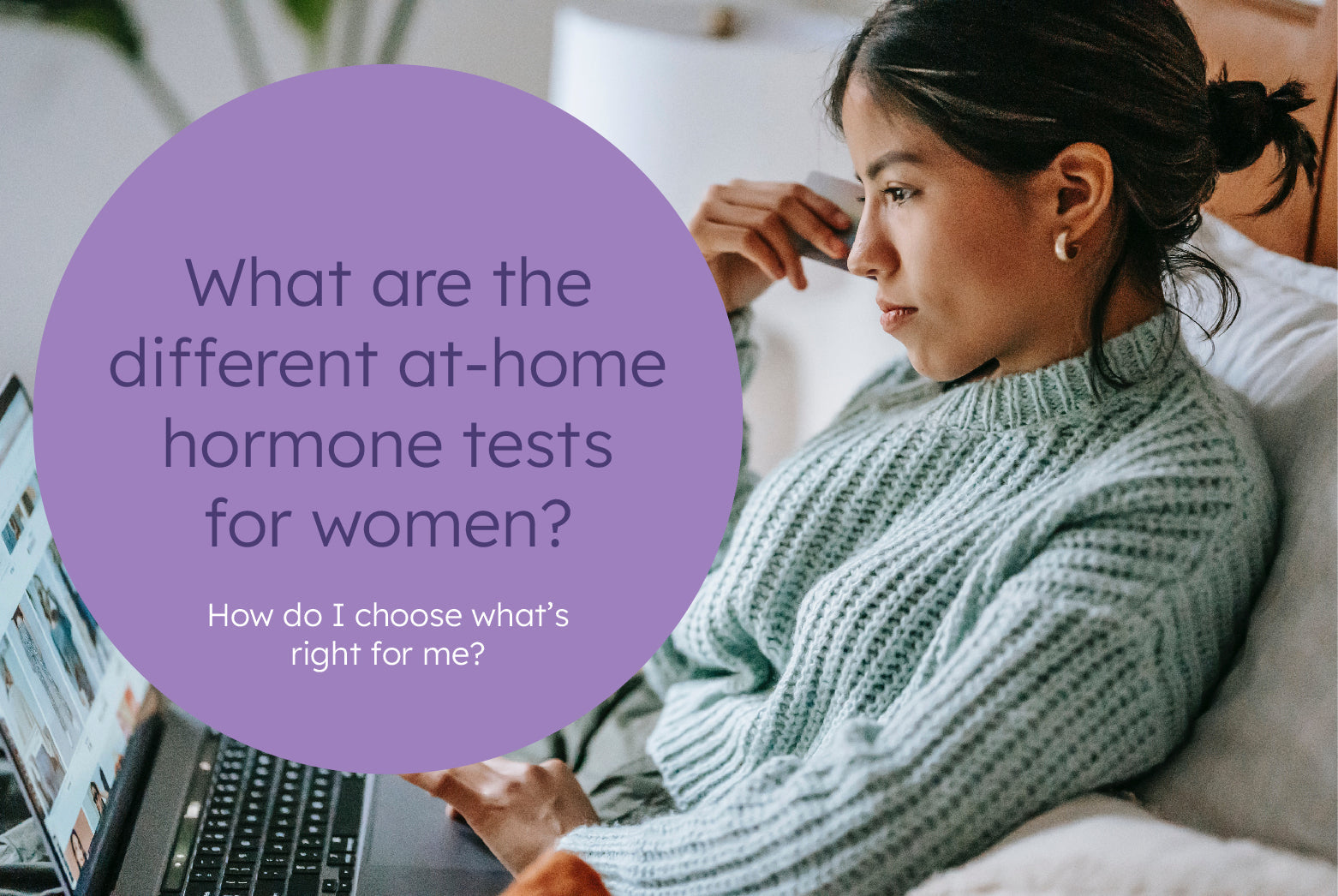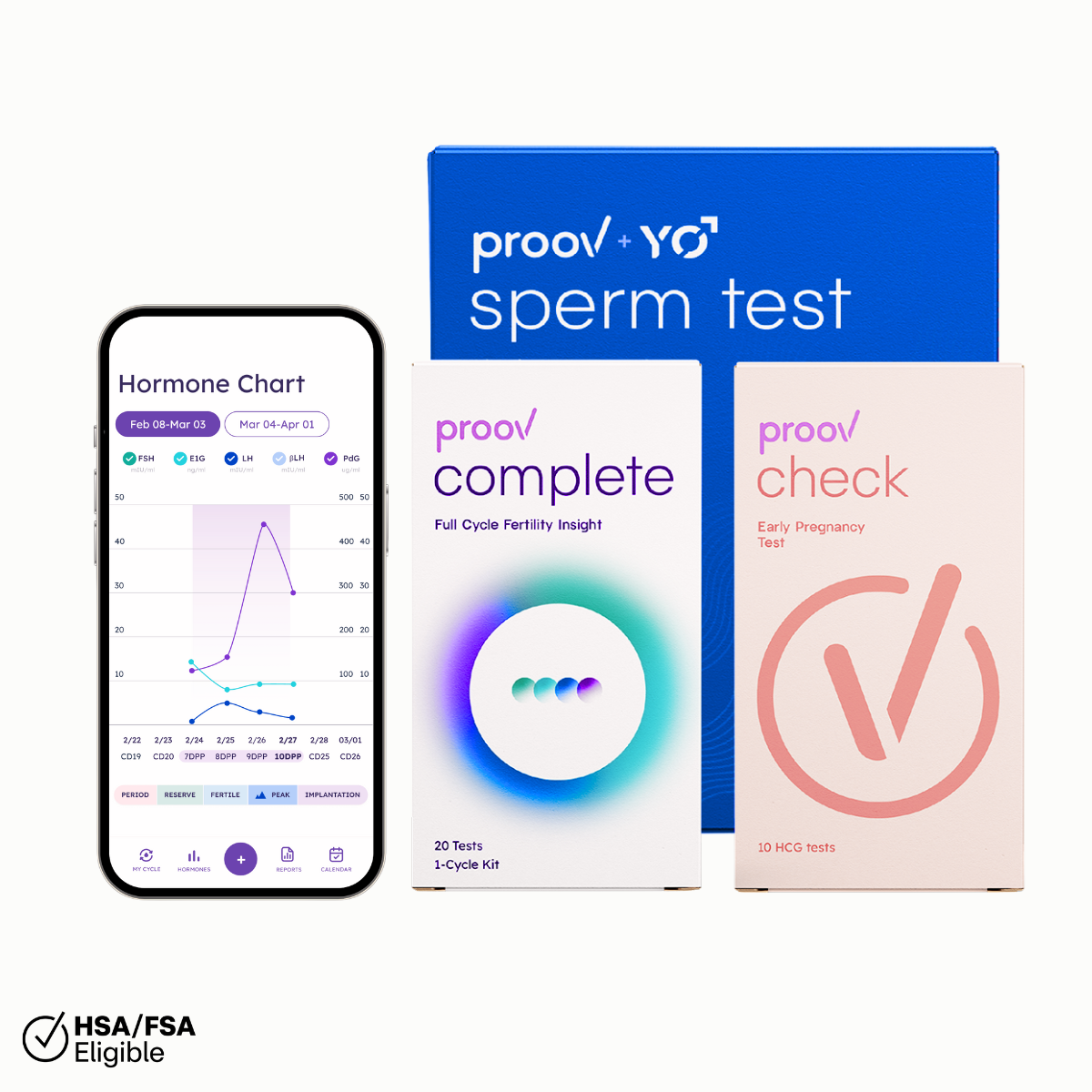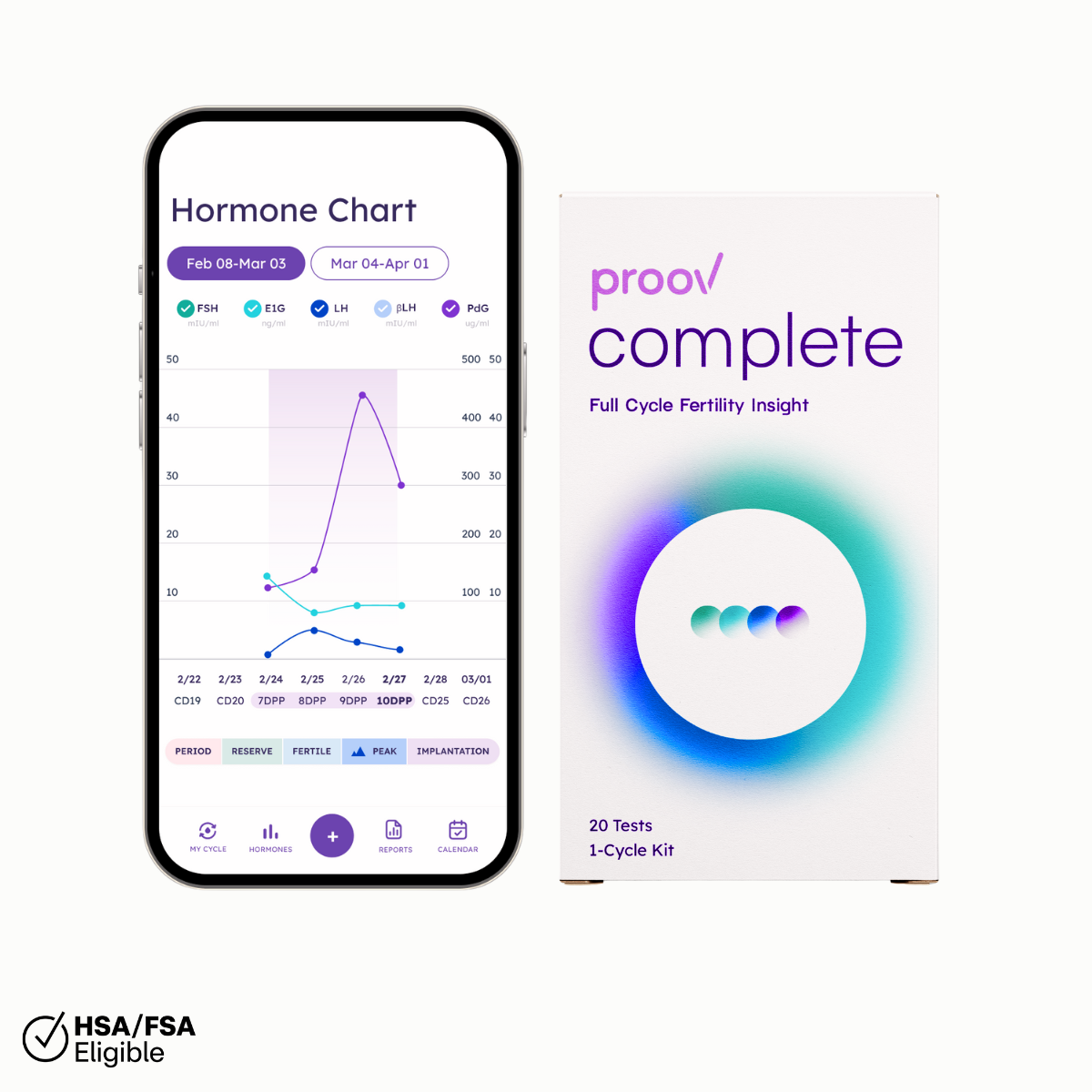We live in an age where information is at our fingertips like never before, and why should hormone information be any different? The last decade has produced a new avenue by which we can understand key hormone changes happening in real time – and from our own home!
The most commonly known at-home hormone test is the pregnancy test, which tests the urine for the presence of hCG (human chorionic gonadotropin). HCG increases rapidly with the development of an early pregnancy. Made popular in the late 1970s, this was the first at-home test to revolutionize a woman’s ability to identify, from the comfort of her home, whether she was pregnant.
We now have the ability to look deeper into hormones related to a woman’s reproductive health!
Why Take Hormone Tests?
Until the invention of urine-based hormone tests, the only way to gather detailed hormonal data was through a blood test at your local doctor or lab clinic. But going to a doctor or lab isn’t always an option. You may not have insurance coverage, it may be inconvenient to travel there, or you may not want all those needle sticks!
Whatever your reason, at-home hormone tests for females provide you with quality data that can point you in the right direction when identifying hormonal changes!
The Importance of Balancing Hormones When Trying to Get Pregnant
Having balanced hormones is considered a primary sign of health when trying to get pregnant. Each dominant reproductive hormone – FSH (follicle stimulating hormone), estrogen, LH (luteinizing hormone), and progesterone – plays a critical role in allowing fertilization of an egg and implantation of an embryo. But the whole body is involved in a pregnancy, and even thyroid and stress hormone levels can make a difference.
So which hormone tests are the most important when trying to conceive? Below are just some of the at-home tests available, but we’ll break down which tests provide the most valuable information when it comes to getting pregnant.
Types of At-Home Hormone Tests to Try
Fertility Tests
As we mentioned, there are four key hormones that impact the body’s ability to release a healthy egg and implant an embryo for a successful pregnancy. Testing these hormones can provide insight into key aspects of trying to conceive:
- Ovarian Reserve: FSH can provide insight into ovarian reserve, i.e. how many eggs you have left. A lower ovarian reserve can impact your ability to get pregnant.
- Fertile Window: The fertile window refers to the few days leading up to and including ovulation each cycle when intercourse or insemination is most likely to result in conception. Testing hormones like estrogen and LH can help you predict ovulation and accurately identify your fertile window.
- Successful Ovulation: After ovulation occurs, the body produces progesterone, the hormone responsible for preparing the uterus for implantation. Successful ovulation refers to an ovulatory event in which ovulation occurs and progesterone levels remain adequately elevated during the implantation window to allow for a higher chance at possible pregnancy.
Proov Complete measures these key hormones and their urine markers to provide full-cycle insight into your fertility, so you can get pregnant faster!

Menopausal Tests
In their 30s and 40s, many women will begin to experience the hormonal changes associated with perimenopause, which is the period of time in which your body is preparing for menopause. Menopause is defined as the single day that marks 12 months since your last period.
Common symptoms of perimenopause can be irregular periods, trouble sleeping, extreme fatigue, and joint pain. But every woman's experience and symptoms will be different, and not everyone with those symptoms is entering menopause!
Tests like Proov Empower measure key levels of FSH, PdG, and estrogen, as well as track menstrual changes and symptoms to define what stage of perimenopause you may be in and provide solutions and next steps.
Perimenopause is a natural part of life that all women will go through. Tracking your hormones allows you to take control of your health and get ahead of symptoms.
Thyroid Hormone Tests
Did you know your thyroid has a direct impact on your reproductive health? Conditions like hypothyroidism can often go undiagnosed in women, yet it can make it more challenging to get and stay pregnant.
Many doctors will test your TSH (or thyroid stimulating hormone) level, but getting a full thyroid panel may reveal helpful information, as well. You can certainly call your doctor to schedule this, but there are also at-home tests now available!
Most at-home thyroid tests include some combination of TSH, free T3, free T4, and Thyroid Peroxidase Antibodies (TPO), but if you need more specific labs (like thyroid stimulating immunoglobulin), there are at-home tests for that, too. All are tested from the comfort of your home with a simple finger-prick! These numbers can reveal hypothyroidism, hyperthyroidism, Hashimoto’s disease, and more.
Stress Hormone Tests
Stress can play a huge role in our menstrual health! When the body experiences stress (whether major or chronic), it will release cortisol (the stress hormone). Cortisol is a powerful hormone that helps us get into a fight or flight mode, when needed! But when it’s not needed, this amount of cortisol can make it seem like an unsafe time to conceive, and cause delays.
Cortisol is created in the adrenal glands at the direction of the pituitary gland in the brain. This is a whole body response to stressors! There are at-home tests to measure the level of cortisol in the body, but it’s possible you already know if you’re in an especially stressful time of life.
Identifying the stressors affecting your health and slowly taking steps to address them can make a big difference in your reproductive, and overall, health.
Testosterone Tests
While testosterone is often associated with males, it is active and important in every person. Testosterone even has the potential to affect the odds of a successful conception.
While levels produced in the ovaries only need to be between 15-70 ng/dL, it can make a big difference if it’s not! Testosterone in women comes from the ovaries and helps in the development of reproductive organs, red blood cells, and more.
Some at-home hormone tests will include testosterone as a part of its hormone panel, so be sure to check all hormones covered to find the at-home test kit that’s right for you! If your testosterone level is low or high, be sure to consult with your doctor about why this might occur and what can be done to improve your levels.
Interested in testing your fertility hormone levels at home? Try Complete!















